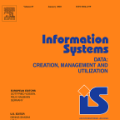The ability to self-organise is posited to be a fundamental requirement for successful agile teams. In particular, self-organising teams are said to be crucial in agile globally distributed software development (AGSD) settings, where distance exacerbates team issues. We used contextual analysis to study the specific interaction behaviours and enacted roles of practitioners working in multiple AGSD teams. Our results show that the teams studied were extremely task focussed, and those who occupied team lead or programmer roles were central to their teams' self-organisation. These findings have implications for AGSD teams, and particularly for instances when programmers - or those occupying similar non-leadership positions - may not be willing to accept such responsibilities. We discuss the implications of our findings for information system development (ISD) practice.
翻译:自我组织能力被认为是成功的灵活团队的一项基本要求,特别是自组织团队在灵活全球分布的软件开发(AGSD)环境中据说至关重要,因为距离会加剧团队问题。我们利用背景分析来研究具体的互动行为和在多个ASGD团队中工作的从业人员的既定作用。我们的结果表明,所研究的团队任务极为集中,而那些占据团队领导或程序员角色的团队是团队自我组织的核心。这些结论对AGSD团队有影响,特别是程序员或担任类似非领导职位的人员可能不愿意接受这种责任的情况。我们讨论了我们的调查结果对信息系统开发实践的影响。




